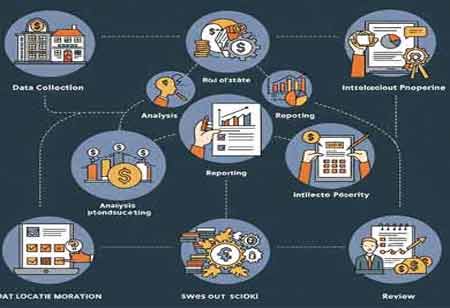CLOSE
Specials
- RegTech Europe
- Financial Risk Management APAC
- Investment Banking APAC
- Corporate Advisory APAC
- Regtech APAC
- Escrow Services
- Digital Banking Latam
- Trading Solutions APAC
- Treasury Management Europe
- CPA Firms Canada
- Financial Risk Management Europe
- Mortgage Broker
- Financial Licensing Europe
- RIA Advisory Europe
- FinTech Canada
- Financial Asset Management APAC
- Investment Banking Canada
- Payment Solution
- Lending Mangment Latam
- Payment Solution Europe
- Broker Dealer Firms Canada
- Alternative Investments Canada
- Financial Fraud
- Investment Management Latam
- Financial Health Europe
- Lending mangment
- Financial Marketing
- Proprietary Trading Europe
- Wealth Management
- FinTech
- Financial Brokerage Firm APAC
- Investment Advisory Europe
- Investment Advisory APAC
- Wealth Management MENA
- Claim Adjusting
- Claim Adjusting APAC
- Mergers and Acquisitions Consulting APAC
- Equipment Financing
- CPA Firms
- Mergers and Acquisitions Consulting Canada
- Investment Services
- Valuation Services Canada
- Wealth Management APAC
- Broker Dealer Firms
- Debt Collection Agencies
- Mergers and Acquisitions Consulting
- FinTech Europe
- Fintech Latam
- Financial Planning / Retirement
- Investment Management
- Financial Compliance
- Digital Banking Europe
- CFO Services
- Debt Collection Agencies Europe
- Wealth Management Europe
- Mergers and Acquisitions Consulting Europe
- Financial Restructuring Europe
- Financial Portfolio Management Canada
- Business Loan
- Payment and Card Latam
- Wealth Management Latam
- Mergers and Acquisitions Consulting Latam
- Tax Advisory Canada
- Trading Solutions Europe
- Alternative Investments
- Digital Insurance Europe
- Investment Services Latam
Weekly Brief
×Be first to read the latest tech news, Industry Leader's Insights, and CIO interviews of medium and large enterprises exclusively from Financial Services Review
Thank you for Subscribing to Financial Services Review Weekly Brief
India Will Test Out Retail Digital Currency
India will launch its first retail digital currency pilot on December 1st at the country's central bank.

By
Financial Services Review | Tuesday, February 07, 2023
Stay ahead of the industry with exclusive feature stories on the top companies, expert insights and the latest news delivered straight to your inbox. Subscribe today.
India will undertake the first pilot for retail digital currency on December 1.
FREMONT, CA: India will launch its first retail digital currency pilot on December 1st at the country's central bank. A month after it started testing CBDC for the wholesale sector, the test will now also evaluate the development and distribution of the e-rupee in the South Asian market with a select group of consumers and businesses.
Four local banks will participate in the pilot's initial phase in four cities: State Bank of India, ICICI Bank, Yes Bank, and IDFC (Mumbai, New Delhi, Bengaluru and Bhubaneswar). The Reserve Bank of India announced that the Bank of Baroda, Union Bank of India, HDFC Bank, and Kotak Mahindra Bank would subsequently join the pilot.
According to the statement, the pilot's scope may be gradually expanded to include other banks, users, and locations as required. The central bank's goal is to reduce the economy's reliance on cash, facilitate more affordable and efficient foreign payments, and shield citizens from the volatility of private cryptocurrencies. The central bank will test out new features and uses of the digital rupee in subsequent pilot programmes based on the test outcomes.
In recent years, the central bank of India has generally worked to discourage its citizens from engaging in cryptocurrency trading. People with intimate knowledge of the situation noted that despite a judgement from the nation's supreme court, the central bank continues to forbid banks in India from working with cryptocurrency platforms, making on-ramp a nightmare for the companies involved.
India's minister of state for electronics and information technology tweeted during the FTX collapse, which further reduced the value of several cryptocurrencies, that Indian investors who left the cryptocurrency market because of the government's prudent guardrails of taxation and exchange control should thank Prime Minister Narendra Modi for his foresight and thus being saved from this crypto meltdown and.
Due to the unpredictability, the local ecosystem has seen some talent leave the nation and an increase in the number of local business owners who build for international markets rather than servicing customers in India, the second-largest internet market in the world.
Leading crypto companies like Coinbase (NASDAQ: COIN) and Polygon (CRYPTO: MATIC), as well as regional exchanges CoinDCX, CoinSwitch Kuber, and WazirX, established a new industry body to foster communication among important stakeholders and raise awareness of web3. This comes after the biggest regional crypto advocacy group was disbanded months prior.
At a time when numerous governments all over the world are testing digital versions of their currencies, the restricted roll-out of the e-rupee seems timely. Singapore's monetary authority announced that it would test a digital version of the local currency. The Bahamas and China's central banks have conducted tests in this area.

Copyright © 2025 Financial Services Review. All rights reserved





